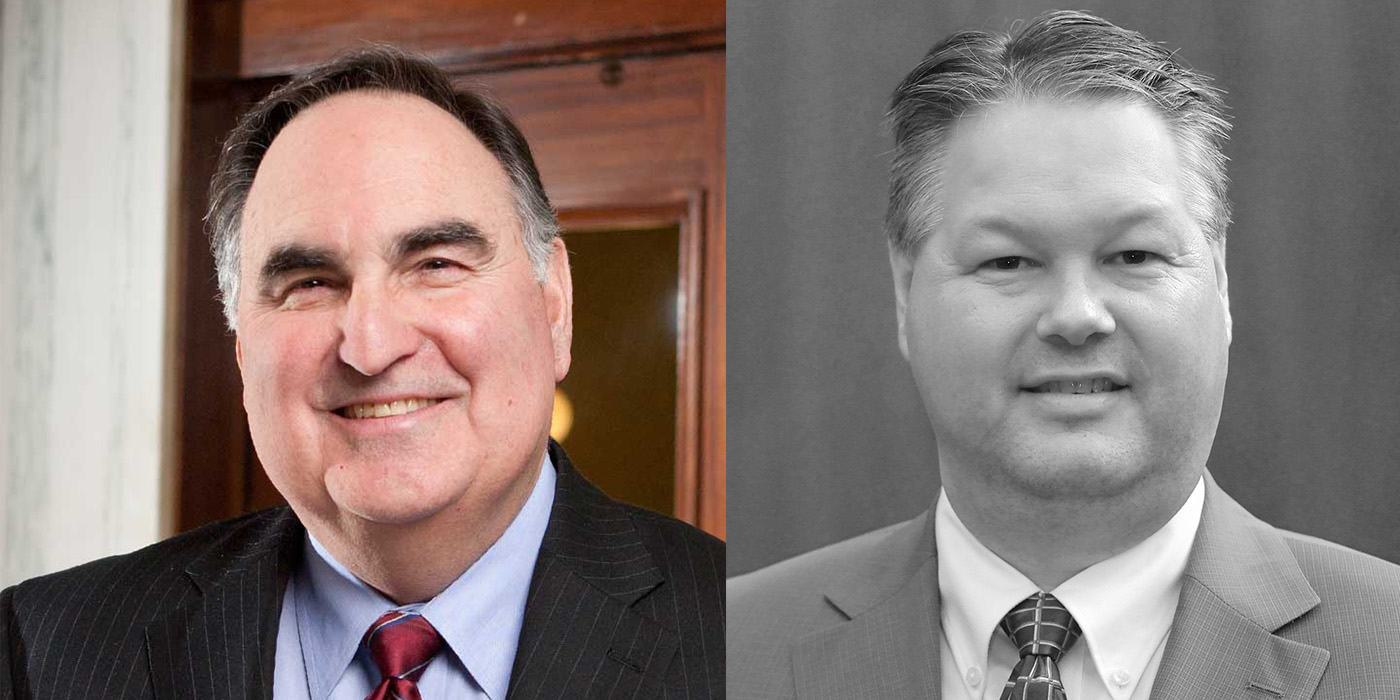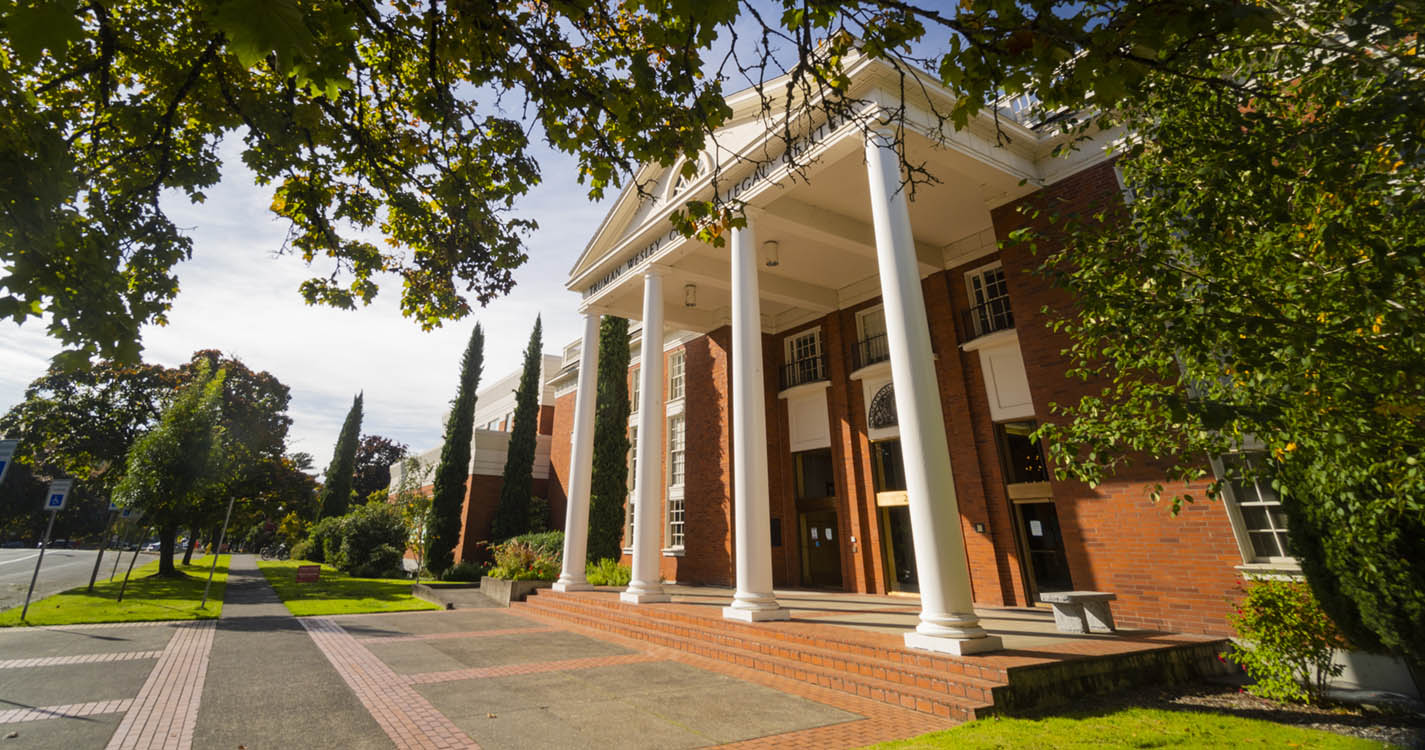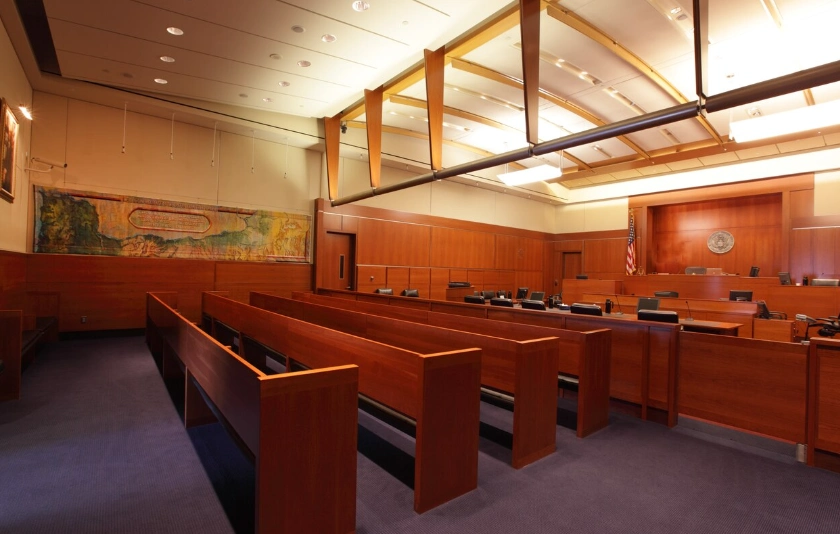Criminal defendants charged with misdemeanors have the right, like any defendant, to effective counsel, guaranteed by the Sixth Amendment of the U.S. Constitution. But in Oregon, for those who can’t afford an attorney, the defense situation is dire.
According to a two-year study completed by the American Bar Association and released in January 2022, the state has a shortage of nearly 1300 public defenders needed to meet the current caseload.
That’s why former Oregon Supreme Court Chief Justice Paul De Muniz JD’75 and Marion County Circuit Court Judge Lindsay Partridge BS’86, JD’89 decided to do something about it. With Willamette Law Dean Brian Gallini’s support, they developed a Misdemeanor Bootcamp. The three-day CLE program was held at the law school in mid-November for young attorneys and new graduates to become qualified to represent indigent misdemeanor defendants.
Oregon’s public defense system has experienced challenges for years, Partridge says.
“It’s pretty frustrating coming to court and looking at someone who needs an attorney and saying, ‘I know you want one, but I don’t have anyone to appoint to you,’” he says.
As a double Bearcat alumnus, Partridge is often reminded of the university’s motto, “Non nobis solum nati sumus,” meaning “Not unto ourselves alone are we born” and emphasizing a commitment to service. Experiencing the indigent criminal defense issue firsthand, he called De Muniz for a brainstorming session over the summer. Together, they believed Willamette Law could be part of the solution for Marion County and other counties, too.
At the time, in Marion County, there were around 40 defendants charged with misdemeanors who were not assigned an attorney. De Muniz and Partridge imagined a short training could qualify attorneys to represent them, helping fill the need.
De Muniz contacted the Office of Public Defense Services (OPDS) to see if their idea would work.
“I approached OPDS to see if they would immediately certify the attendees to represent a misdemeanor,” he explains. “OPDS has rules that are published that say what it takes to represent misdemeanors and felonies, and we wanted to fast-track the misdemeanor qualification.”
“I prepared a memo and sent it to the head of OPDS. She thought it was a brilliant idea and assigned a training person from their office.”
As a faculty member at the law school, he also sought Willamette’s support.
“I want to compliment Dean Gallini, who thought it was a great idea and gave us the venue,” De Muniz says. “They have a courtroom on campus, and that was really great for us. I couldn’t say enough about the dean’s support of this.”
The training was held from November 15-17, 2023, and went over both the practical side and knowledge needed to represent misdemeanors. Attendees learned about submitting funding requests, working with investigators and encountering potential criminal procedure issues. They also went over the anatomy of a trial, from jury selection to opening statements, closing arguments and cross examination.
De Muniz recruited local legal professionals to teach the sessions.
“If Paul De Muniz calls you and asks you to do something, you’re definitely going to do it,” Partridge says. “We didn’t have any problem getting judges and attorneys to volunteer to help us out.”
While those in attendance had already graduated from law school, they may not have had the necessary training to understand this particular type of client or practical courtroom experience, De Muniz and Partridge say.
The group of 20 attendees was attentive and eager to learn. In exchange for the free CLE training, they agreed to accept a minimum of seven misdemeanor appointments from OPDS in the county in which their law practice is located.
De Muniz says the event was a success and a win-win for Marion County and criminal defendants. While no one charged with a misdemeanor would go to prison for life, their charges are still serious. Defendants can’t have due process of law, what they are entitled to, without a lawyer, he says.
“I believe in community. This is the community, our community that has some expertise, stepping up to try to fix a problem,” he says. “This seemed to me to be a solution, that if this could be replicated, that would free up public defense nonprofits to represent those in custody [with more serious charges] who need lawyers. I really credit Willamette for helping address this problem.”
Partridge hopes the training is the beginning of a partnership with Willamette to fill a need in the legal profession.
“I think this issue of indigent defense is not going away anytime soon, so our law schools need to be part of that solution,” he says. “It dovetails beautifully into the dean’s idea of experiential learning. I’m a really proud Willamette grad, and I’m very thankful there is a dean who is motivated to assist in that process and willing to respond to a need that exists in the legal community.
“There is no greater need in the legal community right now.”




